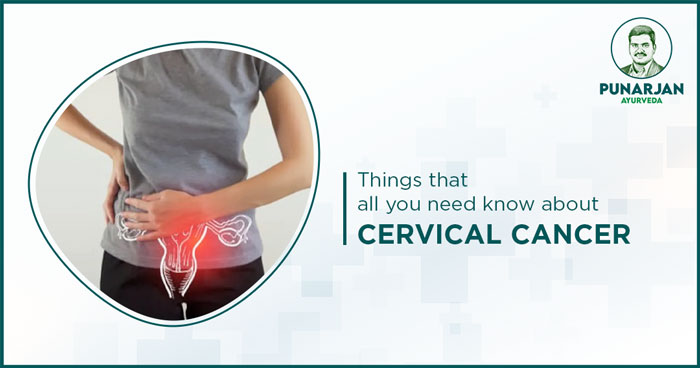The uncontrolled growth of cells at the cervix is known as cervical cancer. Cervical cancer is four the most common cancer in women. Most of the time, all Cervical Cancer Treatment cases are linked to infection with high-risk human papillomaviruses, which means HIV, and it is most commonly transmitted through sexual contact. You can reduce the risk of cervical cancer by having regular screening and being vaccinated. Cervical cancer symptoms also help complete to identify cervical cancer in the initial stages.
What are the types of cervical cancer?
Two types of cervical cancer mainly affect women. Those types are
Squamous cell carcinoma:
- This type of cervical cancer develops at thin, flat cells lining the outer part of the cervix, and it projects into virginal. Most of the cervical cancer patients are squamous cell carcinoma type.
Adenocarcinoma:
This cervical type begins in the Colum shaped epithelial cells that line the cervical canal in women. It is a sporadic type of cervical cancer compared to squamous cell carcinoma.
The diagnosis and the treatment of cervical cancer patients depend upon these two types of cervical cancer. Sometimes, both types are involved in cervical cancer and rarely occur in other cells in the cervix.
What are Signs or symptoms of cervical cancer?
Early cervical cancer won’t produce any signs or symptoms, but some significant symptoms may notice. Those are
- Vaginal bleeding.
- Watery and bloody vaginal discharge.
- Heavy pain.
These are the main Cervical Cancer symptoms in the early stage. Consult the best oncologist and start treatments immediately when you observe these symptoms.
What are the causes of cervical cancer?
This cervical cancer begins when the healthy cells in the cervix develop Changes in their DNA. At the time of cell mutation, the growths of cells become uncontrollable. These accumulating abnormal cells form mass tumors, and the cancer cells invade nearby tissues and can break off into tumors and spread to other body organs. The spreading of cancer into other body parts is called metastatic cancer. We can’t say the right reason to cause cervical cancer, but commonly HIV may be the main reason to cause of cervical cancer. With these, some other causes are your lifestyle changes health conditions that may cause cervical cancer.
What are the risk factors of cervical cancer?
There are major some risks factors involved in causing cervical cancer are:
- Many sex partners: If you involve sex with more partners and the garter in sexual partners are leads to cause cervical cancer. So, involving more sex partners is one of cervical cancer’s leading risk factors.
- A weekend immune system: If your body’s immune system is weak, then you may have a high chance risk of cervical cancer and another health condition, and you have HPV.
- Early sexual activity: Having sex at a younger age is also a risk factor for cervical cancer.
- Exposure to miscarriage prevention drug: If your mother takes diethylstilbestrol (DES), it leads to cause cervical cancer to you called clear cell adenocarcinoma.
- Smoking: More smoking is associated with squamous cell cervical cancer.
- Other sexually transmitted infections (SITs): Having SITs means HIV/AIDS, chlamydia, gonorrhea; syphilis may have increased the risk of cervical cancer.
What is the treatment for cervical cancer?
Cervical cancer treatment depends upon various factors, such as the stage of cancer, the patient’s health condition, and the patient’s age. The treatment options for cervical cancer are chemotherapy, radiation therapy, surgery, and the combinations of these three treatments.
Chemotherapy:
In this treatment, drugs are used to destroy cancer cells in the cervix, and it is a very effective treatment, and dangerousness may have cancer recurrence. The side effects of chemotherapy treatment are hair loss, fatigue, infertility, early menopause, nausea, and diarrhea.
2. Radiation therapy:
A beam of high energy X RAYS is used to kill cancer cells in radiation therapy. Doctors refer to radiation therapy as radiation oncology. Side effects of radiation therapy are diarrhea, upset stomach, interrupted menstrual cycle, narrowing of the vagina, early menopause, and nausea and bladder irritation.
3. Surgery:
This treatment is used to remove the completer tumor from the cervix, and it is mainly used with a combination of chemotherapy and radiation therapy. This is the last option of treatment for any cancer.
These are the effective treatments used to treat cervical cancer patients, and clinical trials are also one of the best treatments for cervical cancer. But, these all treatments cause side effects and very effective treatments. Instant of these treatments Ayurveda cancer treatment is the best option for cervical cancer and helps heal completely with natural treatments. Punarjan Ayurveda Hospitals provide the best Ayurveda cancer treatment by using natural remedies and herbs with a proper healthy diet and exercise that won’t cause any side effects. So, take Ayurveda treatment for cervical cancer for best results.
Know more about How to cure stomach cancer with Ayurveda treatment?
Disclaimer:
This information on this article is not intended to be a substitute for professional medical advice, diagnosis or treatment. All content in this site contained through this Web site is for general information purposes only.




